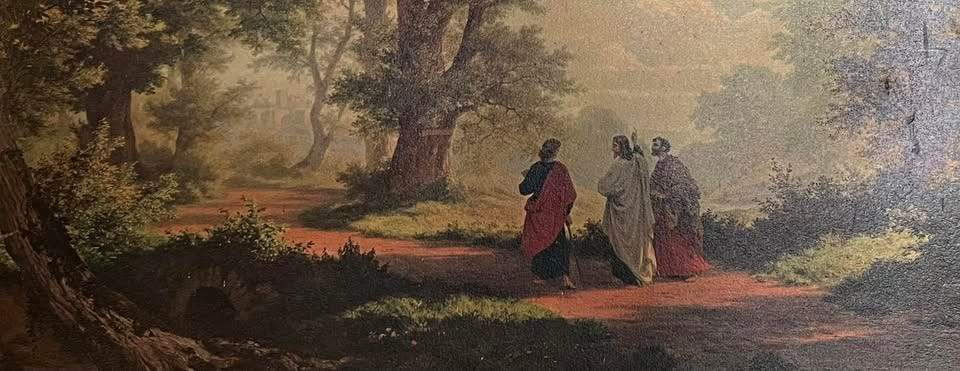Demystifying controversial inspiration
If you delve deeper into a variety of religions you might find that there is plenty of common ground among them. The goal of all of them, or should be at least, is to know and experience God.
I often post inspirational quotes on my Facebook page and other social media.
Nothing controversial intended. But, for some reason, it occasionally causes dissatisfaction and confusion.
I recently shared this advice:
“There are only two mistakes one can make along the road to truth; not going all the way, and not starting.” ~ Buddha
My friend George wasn’t having it.
“I prefer the advice of Jesus Christ in all matters pertaining to life,” he retorted.
Sometimes the inspirational references generate confusion among people who tend to be bothered when somebody colors outside their lines.
For example, I recently chose this quote:
“Pray only for knowledge and light.” ~ Vivekananda
I think that’s good advice. I rarely ask God for anything besides Divine guidance to find truth and make the right decisions.
But “Jack,” who seems like a nice enough guy whom I don’t think I’ve ever met, but with whom I must share some common interest since one of us, at some point, accepted the other’s friend request, offered this in response:
“I’d rather pray to God our Father and his Son Jesus Christ.. for millions of things, or just to say thanks. I’m really confused by this. Are you Hindu, or Christian?”
I didn’t mean to confuse anybody.
Suppose I had offered the following:
“Choose rather to be strong of soul than strong of body.” ~ Pythagoras.
Jack may have demanded, “Wait. I’m confused. Are you Irish or Greek?”
I’m guessing my reply to Jack’s query may have further disoriented him.
“Both,” I answered.
My direct relationship with God is not subject to man-made labels or factions. I prefer to recognize the commonalities among truth seekers, not the differences that create divisiveness and hatred.
A few years ago, on the anniversary of my dad’s passing, I reposted the following:
“Walk worthy of the vocation wherewith ye are called.” ~ Paul’s Letter to the Ephesians, 4:1
“At death, you forget all the limitations of the physical body and realize how free you are. For the first few seconds there is a sense of fear — fear of the unknown, of something unfamiliar to the consciousness. But after that comes a great realization: The soul feels a joyous sense of relief and freedom. You know that you exist apart from the mortal body.” – Paramhansa Yogananda.
That quote, which I originally posted on the morning of Dad’s passing in 2013, came from the Indian yogi who often emphasized the commonalities between Eastern philosophy and Western Christianity. Dad introduced me to Yogananda when he gave me a copy of his Autobiography of a Yogi.
Jack responded, “Ken, I’m curious as a Christian you’ve spoke of your faith often, but I’m curious how you try to mix Christianity with the Pagan Hinduism and feel there can be common ground whatsoever. They have millions of gods they pray to and Judeo Christian faith condemns it. In fact it condemns every aspect of Hinduism, Tao, Buddhism. How does this conflict work with you?”
I replied:
Thank you for your interest and curiosity Jack.
There is no conflict. There is one God and many religions, just as there are fragmented beliefs among the “Judeo Christian” faith.
I’m not sure about the “millions” of gods some Hindus might pray to, but that seems similar to the numerous saints that Christians, or at least Catholics pray to.
If you delve deeper into a variety of religions you might find that there is plenty of common ground among them. The goal of all of them, or should be at least, is to know and experience God.
I’m not sure about this “Judeo Christian faith” you refer to, because there isn’t a singular “Judeo Christian faith.” Amongst “Christian” principles, the ones that matter to me are the ones expressed by Jesus and not necessarily the people who have interpreted and misinterpreted His teachings over the past 2,000 years.
I haven’t read where Jesus condemned Hinduism, Tao or Buddhism, but He did have a few things to say about the Pharisees. “Well hath Esaias prophesied of you hypocrites” (Mark 7:6), for example.
To answer your question, my beliefs, pursuit of true knowledge and my faith in God have “worked” well for me [during the darkest time of my life].
I’m always happy to answer questions about what I believe if somebody is truly interested. I also respect what other people believe.
The image at the top of this page is from my favorite artwork, “The Road to Emmaus,” created by Robert Zünd in 1877. The painting portrays the resurrected Jesus’ appearance to Cleopas and another disciple as they journeyed eight miles from Jerusalem to the village of Emmaus. My brother Ron was aware of my fascination with the painting and gifted his print to me upon his passing in 2015.

